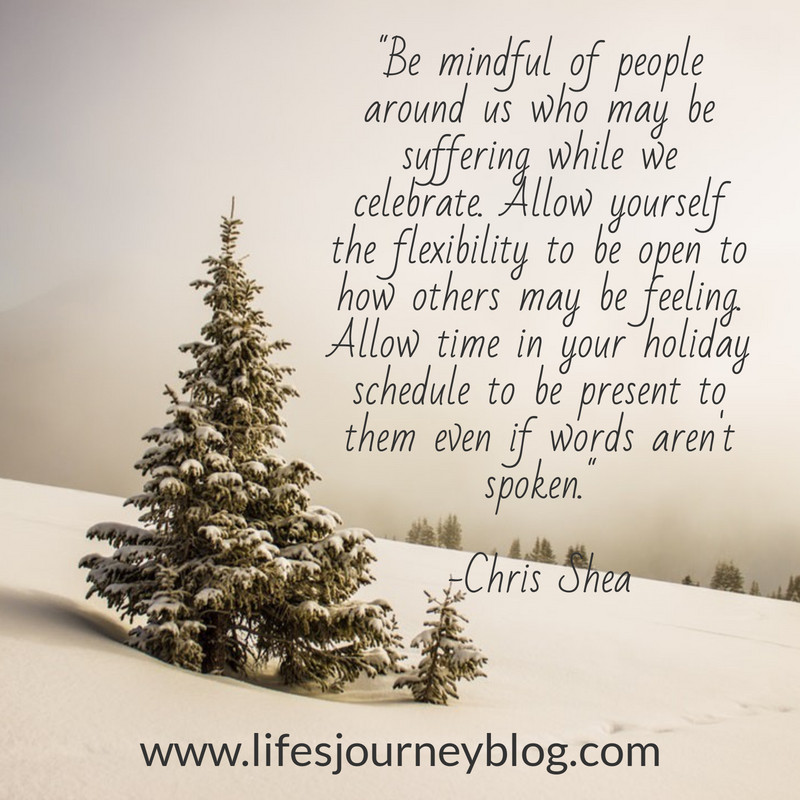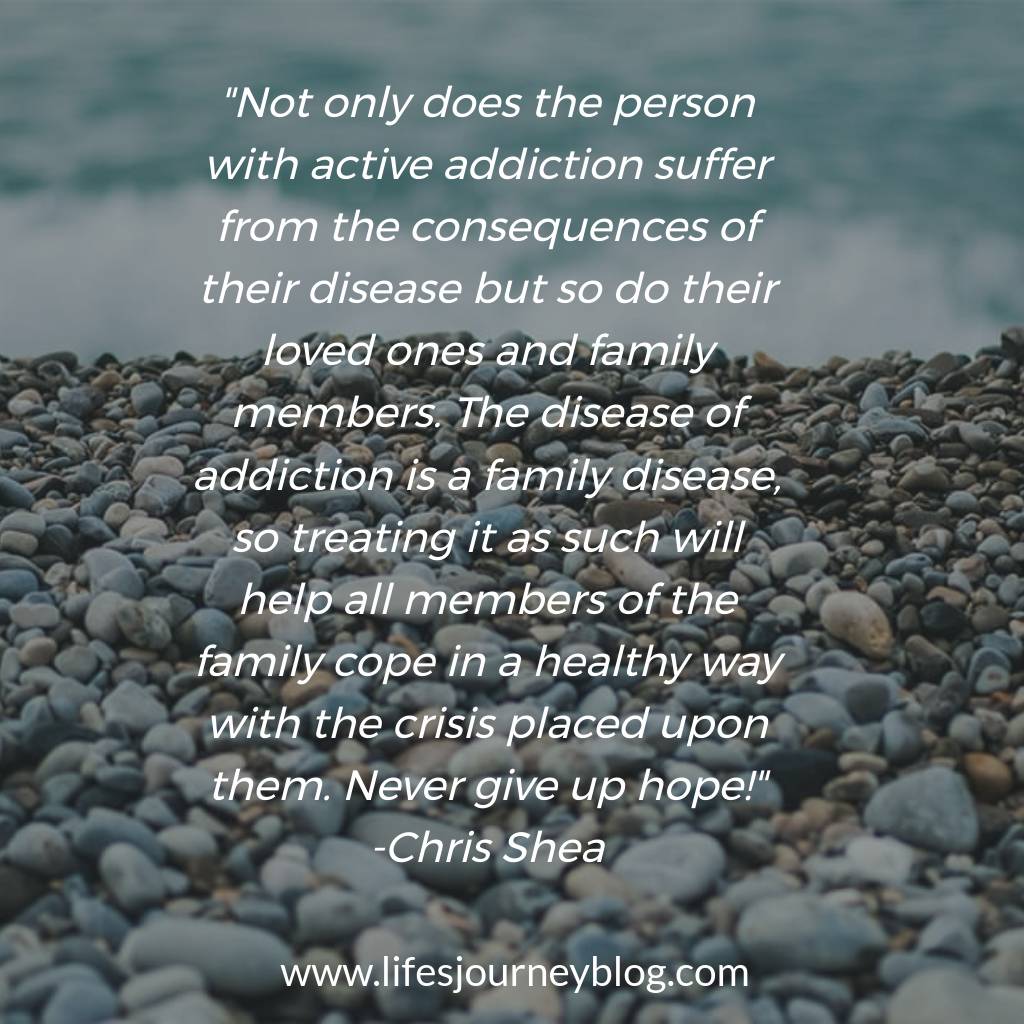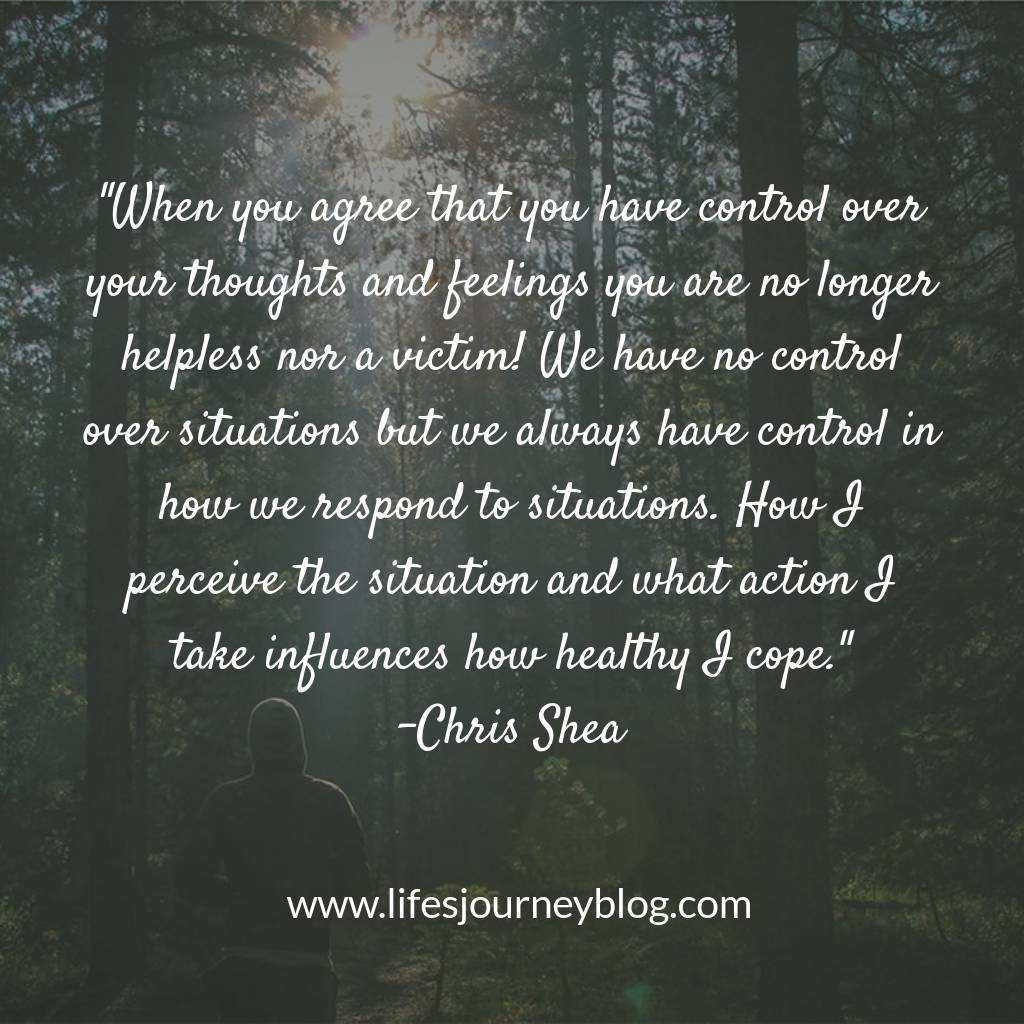Posts Tagged ‘cope’
The Holiday Blues How To Help People Cope
The holiday blues are a real phenomenon, with half of us feeling some stress and fatigue if not mild depression. The holiday blues are felt by people as a result of the holiday season. Yet, some people are entering the holiday season already feeling stressed, anxious, sad, grieving, depressed, etc. How do I enjoy the holidays while helping people I know to cope with their holiday blues?
“If one were to devise an experimental set of circumstances which would test the integrity of an individual’s mood control, one would invent the year-end holiday season.” Jonathan Himmelhoch, Psychiatrist, Western Psychiatric Institute, and Clinic
The holiday blues are real, and according to at least one study, about half of us experience the holiday blues (the survey reached 786 adults, 18 years or older Fall of 2006). But some people suffer the holiday blues because they entered the holiday season already feeling sad, depressed, anxious, etc. The seemingly joyous time of the year enhances their depression and anxiety.
I don’t think there is any other time of the year, which evokes such strong emotions as does this time of the year. For some of us, we are excited, joyous, filled with wonder and anticipation! We visit family and friends, host parties and gatherings, spreading joy everywhere we go! But yet some of us feel quite the opposite this time of the year. I think of those who recently lost a loved one, suffering from physical or mental health issues, separated from loved ones, and even estranged from the family. There are those whose past experience of the holidays wasn’t pleasant, and those who feel trapped in life situations.
Bonus: Download Chris Shea’s booklet on Life Coaching & is it for me? Click here to get it
“It’s the most wonderful time of the year!” While these song lyrics may be accurate for some, they’re not necessarily right for everyone. I’m not writing this to bring down the mood, but what I am saying is that we need to be mindful of people around us who may be suffering while we celebrate. Some of my current clients are dreading these next few weeks, while other clients are looking forward to a new beginning!
Regardless of how we may feel about the holidays themselves, this time of the year finds many of us feeling the burden for perfection. As joyous as we may be, the expectations for a “Rockwell Christmas” haunt the best of us. While we still have our day-to-day tasks to complete, we must also decorate, buy gifts, and attend social functions. These expectations, especially if we feel obligated, can cause stress and anxiety even in those who enjoy this time of the year. Now imagine the stress and anxiety felt by those who are merely trying to cope with life, let alone the added expectation of the season.
This time of the year, we tend to focus more of our attention on helping others and on giving back. Therefore, what can we do to either help or give to someone who is suffering during this holiday season?
- Create an awareness within yourself and your children that not everyone feels joyous this time of the year. This awareness is not meant to place a burden on us, but as a recognition for the reality of others.
- Create an environment where all people feel open to sharing their feelings honestly. While attending or planning, parties and gatherings don’t encourage everyone to participate, be respectful of those who are having a difficult time participating. Try to plan activities that would allow a person to participate in the degree in which they feel comfortable.
- Be mindful that your expectations of what makes up a holiday celebration may not be the expectations of others. Allow yourself the flexibility to be open to the traditions of others as well as to how others may be feeling. For example, if you are organizing the family dinner, take into account any family members who have had a challenging year. Allow them space or the time to speak, or not speak, if they wish. Be aware that their showing up may have been a difficult task in and of itself.
- If you know someone struggling to cope with a mental illness, or emotionally struggling, be a supportive friend. Allow time in your holiday schedule to be present to them, even if words aren’t spoken. Never underestimate the positive effect and healing quality of presence. If possible and appropriate, encourage them to join you at small gatherings and surround them with people who have their best interests at heart. Isolation, especially during the holidays, is not healthy.
- Encourage them to do activities focused on taking care of themselves and their emotional health, regardless of the expectations placed upon them by themselves or others. Help them to understand that It doesn’t make you a selfish person when you prioritize yourself, it is actually essential toward your well-being.
- Take time from the busyness of this season to be an active listener to those who wish to share their feelings. Encouraging and allowing others to share how they feel may be the most helpful thing you can do for them. If they are reluctant to share, lovingly help them by letting them know that you will listen without judgment regardless of what they wish to talk about and share.
During this holiday season, as many of us join together with our families and friends, let’s be grateful and joyous in our traditions and fellowship. But let’s not forget those who are emotionally suffering at this time of the year. Being respectful, understanding, and lovingly present is the best holiday gift a person can receive.
{loadmoduleid 140}
How To Cope When Addiction Runs In The Family
Nowadays, the unfortunate reality is that many of us have been affected in some way by addiction. We personally may not be the person suffering from the addiction but odds are there is someone in your family or circle of friends who either is currently addicted or is working on a program of recovery. The latest opioid crisis has brought addiction to the spotlight, but addiction as a problem has been around for decades.
More and more families are affected by addiction and are seeking ways to cope with a situation that places any family in a crisis mode. Even the healthiest of families find their world turned upside down when needing to deal with a family member suffering from addiction. I have worked in the addiction field for a couple decades and have seen the positive outcomes of recovery and have witnessed how families have gone from their lowest points to becoming healthy and whole. I am not saying this is easy, but I am saying it is possible.
Before I get into discussing the impact that addiction has on a family and what the family can do to cope with the addiction, I would like to offer a definition of addiction. Addiction is referred to as a chronic disease characterized by drug seeking and use that is compulsive, or difficult to control, despite harmful consequences. Yes, addiction is classified as a disease not unlike any other medical disease. unfortunately, many in our society continue to view addiction as a moral failing and a choice rather than the chronic disease that it is. If you are unsure that addiction is a disease please check medical websites as they will show you why and how the medical profession views addiction as a disease.
What we mean when we say that addiction is chronic, is that addiction runs in families and is passed on from generation to generation. Not unlike chronic heart disease or diabetes, chronic addiction is treatable yet not curable. A person diagnosed with having an addiction does not have to suffer daily from that addiction but must daily treat the addiction.
I like to refer to addiction as a “family disease” since the family unit is greatly impacted by an individual member’s active illness. As the disease of addiction progresses and the person with the disease begins to change their behavior, attitudes, and how they deal with the family, the family unit changes their behaviors and thoughts in order to cope with the changes of the person with addiction. When the person with the addiction enters recovery, meaning they are no longer actively using, their behaviors and thoughts will return to a more healthy view of life. But, if the family has not made any changes then the family unit remains unhealthy as they continue to view the person in recovery as if they were still using.
Therefore, it’s important to treat the person with the addiction as well as to treat the family as a whole. Not that it’s the fault of the family, but rather it’s to help the family learn healthy coping skills. If a family member were diagnosed with chronic cancer the family as a whole would be greatly impacted and would change how they view the person with cancer. Helping that family cope with the member suffering from cancer is no different than helping a family cope with a person suffering from an addiction.
So, what can a family do to cope with the crisis and upheaval in their lives as they experience the active addiction of one of their members? Let me first start with a few “don’ts” for a family to consider:
- Don’t blame yourself! Although this is a natural response to the crisis, blaming oneself does not offer a solution but only spirals you into a depression or a “pity party”. The reality is that you did not cause your family member to use regardless of what they may tell you while in the midst of their active addiction. Even if we were to admit it was your fault, the act of blaming yourself still does not give us a workable solution to cope with or solve the problem. It’s important to remind yourself that this is not your fault and you are not to blame!
- As difficult as this may be, don’t live your life solely for the person with the addiction. Instead, continue, as much as possible, to live your life as you have been.
- Don’t enable. This is very difficult but essential to helping the person with the addiction to move toward recovery. Enabling takes many forms but generally speaking anything you do which ultimately helps the person to continue with their addictive behaviors is enabling. In most cases family members don’t enable out of a desire to continue the addiction, but rather they make choices, out of love, but which end up enabling instead of helping.
Let’s now look at a few tips that a family can do to cope when addiction runs in the family:
- The first thing I always recommend families do is to care of themselves. Coping with a family member who is suffering from addiction is quite taxing and drains family resources. It’s important to do things which have nothing to do with the coping of the person with the addiction. If the family member is outside of the house then the rest of the family needs to take time to do things on their own to maintain their family bonds. If the person suffering from the addiction lives in the household it is important to have family time either with or without that person but not talking about the addiction. Don’t allow the disease of addiction suffered by one person bring down the entire family.
- Educate yourself about addiction. The more you know the more you will understand what your loved one is going through and how best you can help them. Understanding that it is not your job to change them, but as a family it is your responsibility to guide and support them to the best of your ability. As I mentioned above, you are not to blame for the situation and so it is not your full responsibility to “fix” the situation.
- One way to help with family self-care and education is to seek family or individual counseling, or to find support groups. Groups such as Al-Anon are made up of members who are also doing their best to cope with the active addiction of a loved one. I know it’s difficult to seek help, but if the family falls apart how will the family ever be able to help the person with the addiction? Seeking outside help will, in the end, teach healthy coping methods which will bring the family closer together.
- Managing expectations will keep you grounded and remove some of your stress and anxiety. Many of us feel anxious or stressed when outcomes don’t match up with our expectations. Keeping our expectations based on reality will help us feel some inner peace. For example, a reasonable expectation is that the person suffering from the addiction seeks help, whereas an unreasonable expectation is that the person will become cured just because you told them to stop using. If recovery were as simple as being told to stop doing what they’re doing they would have done that at the beginning.
- Continually remind yourself and the rest of the family that addiction is a disease and not a moral failing to be judged. The longer you feel that it is a moral failing the more frustrated you will become when your loved one continues their use. Reminding yourself that they are suffering from a disease will reduce some of your frustration as you realize that your family member is not necessarily being obstinate but that they need proper medical care to treat the illness from which they suffer.
Not only does the person with the active addiction suffer from the consequences of their disease but so do their loved ones and family members. The disease of addiction is a family disease, so treating it as such will help all members of the family cope in a healthy way with the crisis placed upon them. Never give up hope! I have witnessed many families come out the other end of addiction closer and healthier than they were prior to the crisis. Seek help for your loved one, but just as importantly seek help for the family.
{loadmodule mod_custom,continue the conversation here or on social media}
Successfully Coping With Adversity
In today’s day and age, who hasn’t been affected by adversity of some sort? It is the rare yet fortunate person who lives life unaffected by any pain or suffering. Living life means we take chances and place our trust and faith in other people and society. This trust in others can be betrayed while some of the chances we take don’t work out the way we hoped or wanted. This is why we suffer from adversity.
I reviewed various dictionaries for the definition of adversity and found “misfortune” and “a difficult or unpleasant situation”. I feel that it’s important for us to keep in mind that some adversity happens to us, while some adversity may be caused by us. Nonetheless, I firmly believe that it is not the adversity which defines us, rather, it’s our way of dealing with the adversity which is most important. The question is not “how do I avoid adversity?” The question is “How best can I cope with my adversity?” We can’t escape adversity, but how we respond to the adversity will determine whether or not we are happy and at peace, or miserable and in turmoil.
The first step in learning to cope is in learning to change our perspective. Our perspective about ourselves and the world around us is our reality. I will spare us a philosophical discussion on reality, except to say that reality is based on our perception of our world. Think about it: if I don’t feel positive about myself, then my view of my world will not be positive. How can it be? If I’m miserable I won’t appreciate the positive and beautiful aspects of our world.
When adversity enters our world, our perceptions of the adversity, our world, our family, and oneself will determine how we cope with the adversity. It’s important for us to recognize our perceptions and work on changing our negative views and thoughts. I’m not saying we are to deny or avoid the negatives in life; they are real and a part of who we are. What I am saying is that dwelling on the positives in life will influence our perceptions. A favorite quote of mine is “there are no problems, only solutions.” (John Lennon) I agree with the sentiment. If we focus on “solution-thought” there are no problems only the solutions; that on which we focus our attention is our reality.
I encourage you to spend time each day practicing changing your thoughts to focus on the positive and on solutions. Don’t deny the negative, but re-think the situation.
The next step in coping with adversity is in training our thoughts to focus on the positives in life. As previously mentioned, our perception is our reality, and our reality influences our thoughts (and vice versa). So, changing our thoughts will change our reality and our feelings. We don’t ignore or hide the negatives in life, but what is it that becomes our main focus; the negatives or the positives? In the latter, we still acknowledge the negative, but we focus on what we can do, on the solutions needed; not on what we can’t do or change.
As we reflect on life we notice that most days there are positives and negatives at the same time. We become anxious or overwhelmed as we focus on future problems or negatives because we can’t control the future. The same is true for our regrets of the past. We can’t control our past so we feel anxious about the past. Focusing our thoughts on the future and on the past cause our adversity to feel more intense since we are focusing our energies on negatives and things we can’t control.
So, focusing our energies on the positives, and on the present moment, will help us to to feel less intense about our adversity. The key, as I see it, is control. That which I have control over won’t bother me nearly as much as that which I don’t have control over.
The next step in coping with adversity is in understanding that we are not victims of the adversity. Victimhood, the feeling that my life is out of my control, causes us to fall into a sense of helplessness. If you convince yourself that “the world is out to get me”, or that the situation is forced upon you, you then convince yourself there is nothing you can do about it.
Once you feel out of control with no options for action, the adversity takes over. But this does not need to happen! This is the reason I have been talking about changing perspective and changing our focus to the positives. Here’s the key in one easy phrase WE HAVE CONTROL OVER OUR THOUGHTS AND FEELINGS!
When you agree to that statement, that you have control over your thoughts and feelings, then you admit that you have control! Since you have control you are no longer helpless nor a victim! We may, in reality, have no control over situations we find ourselves in, but we do have control, always, in how we respond to situations. How I perceive the situation and what action I take influences how healthy I am coping.
We can’t avoid adversity, don’t make that your goal. The goal is in how well I can keep control of my thoughts and feelings. Before adversity happens, practice this. Take time daily to refocus your thoughts to the positives and to solutions. The more often you do this the easier the task becomes. And when adversity happens, do the same thing; refocus your thoughts on positives and solutions. As I quoted earlier “there are no problems, only solutions”.
I admit that this is not always an easy task, and yes, we will fail at it from time to time. Be easy on yourself when you do. Then get up, refocus on the positives, and find solutions which will help the situation. Remember, we can’t always change the situation itself, but you can always change how we respond to the situation.
{loadmodule mod_custom,continue the conversation here or on social media}
tips for finding hope in winter
“In winter we lead a more inward life. Our hearts are warm and cheery, like cottages under drifts, whose windows and doors are half concealed, but from whose chimneys the smoke cheerfully ascends.” Henry David Thoreau
My house after the first of two blizzards to hit in 2010 (credit: Blog Author)
Today, our planet is tilted in such a way that half of us will experience the shortest day of the solar year, the Winter Solstice. Personally, this is my favorite time of the year, for as Thoreau so poetically wrote, this is the time of the year most suited for leading an inward life.
I grew up in the northern part of the US where the days were short, the nights long, and snow blowing in the bitter wind. Ah, heaven! The sun would set around 4:00pm or so and a purplish haze would envelop the area just prior to the arrival of darkness; my favorite time of the day. Why? I’m not really sure, to be honest. It may be because that’s where I grew up and so the memory of cold winter evenings brings a warmth to my thoughts. It may be because of my penchant for quiet beauty as an opportunity for reflection. Regardless, today ushers in an excitement for me just as the arrival of summer produces in others.
The Winter solstice has been observed for thousands of years. Our ancestors built edifices, large bonfires, and later lit up their homes; all in the hope of enticing the sun to return. If we think as ancient humans thought, imagine what would be going through their minds as the days shortened. In lieu of scientific knowledge, they most likely were fearful that the sun eventually would not return.
In our personal lives, do we ever feel that the “setting sun” will not return; that our happiness and peace will never return; that we will live in “darkness” forever? Our internal fear is not unlike the external fear felt by our ancestors. As was true with our ancestors is also true for ourselves; the “sun” will rise once again! Our ancestors most assuredly assumed they had enticed the sun to return through their rituals and bonfires, although it was the working of nature that accomplished that goal. In our lives let us learn from our ancestors who didn’t wait for the eternal darkness, rather, they took action and did all they could to tackle their fear and reverse what they felt was inevitable.
1. When we feel an emotional fear, take some time to meditate, to reflect on your inner self. Try to find the source or reason for the fear.
2. Identify your fear. Honestly name it for what it is. Honestly think through what you feel is the worst possible outcome in your current situation.
3. Have you ever felt this fear before in your life? What was the outcome? What actions did you take at that time which helped ease the fear; what actions did you take which did not ease the fear or change the situation?
4. Learning from your personal history, and with the help of family and friends, what specific action(s) can you take to overcome this fear and possibly change the situation? Regardless of the immensity of your situation and how small you feel your actions are, take action anyway! Our ancestors feared that the sun, the powerful orb in the heavens which gave them light and heat, would disappear forever. What did they do? They lit bonfires. A small fire in comparison to the sun, but they took action nonetheless.
5. Never give up on hope! If you take action to make a difference there is a chance that action will work. Take no action and I will guarantee nothing will change.
Through mindful awareness, we can see the beauty and the hope of this season. The darkness is part of the beauty, if we view it as such.
{loadmodule mod_custom,continue the conversation here or on social media}
Tips For Helping Those Who Are Suffering During The Holidays
To quote a popular song of the season: “It’s the most wonderful time of the year!” While this sentiment may be true for many of us, it is not necessarily the shared sentiment of everyone. As the end of the year mark’s a time for celebrations, holidays, and traditions which bring together families and spark feelings of joy, there are those whose memories and sentiments of this time of the year are quite different from customarily expected.
There are those who suffer from mental illness or whose memories of the holiday season are not of pleasant times. It is unfortunate that many of us forget that not everyone perceives this time of the year in the same way that we do. I’m not writing this to chastise anyone or to bring down the mood the season. What I am saying is that we need to be mindful of those around us who may be suffering while we celebrate.
Many of us feel the burden of unreasonable expectations for perfection this time of the year. While we still have our day-to-day tasks to do we must also decorate, buy gifts, and attend social functions. These expectations can cause stress and anxiety even in those who are enjoying this time of the year. Imagine the stress and anxiety felt by those who are simply trying to cope with life let alone the added expectation of the season.
What can we do to help?
- Create an awareness within yourself and teach your children to understand that not everyone feels joyous this time of the year. This awareness is not meant to place a burden on ourselves, rather as a recognition of the reality of others.
- Create an environment where people feel open to honestly share their feelings. At parties or gatherings encourage everyone to participate, while being respectful of those who are having a difficult time participating. Try to plan activities which would allow for a person to participate to the degree in which they feel comfortable.
- Be mindful that your expectations about what makes up a traditional celebration may not be the same expectations of others. Allow yourself the flexibility to be open to the traditions of others and to how others may be feeling. For example, if you are organising the family dinner, take into account any family members who have had a difficult year. Allow them the space or the time to speak if they wish. Be aware that their showing up may have been a difficult task in and of itself.
- If you know of someone who does suffer from a mental illness or is finding this time of the year to be emotionally difficult, be a supportive friend. Allow yourself to be present to them even if words aren’t spoken. Encourage them to join you at small gatherings and surround them with people who have their best interests at heart.
- Be supportive of those whom you know are suffering this time of the year by encouraging them to be selfish. Selfish in the sense that they need to do things to take care of themselves regardless of the expectations placed upon them. It doesn’t make you a bad person to prioritize yourself, it is actually essential to your well-being to do so.
- Take time from the busyness of this season to be an effective listener to those who are in need of sharing their feelings. Encouraging and allowing those who are suffering to share how they feel can be the most helpful thing you can do for them. Silence is not good for someone who is suffering emotionally this time of the year, even if they feel it is better for them not to speak. Lovingly encourage them to share by letting them know that you will listen without judgement regardless of what they share.
During this holiday season as we join together with our families and friends let us be grateful and joyous in our traditions and fellowship. But let us not forget those who are emotionally suffering at this time of the year. Being respectful, understanding, and lovingly present is the best holiday gift a person can receive.
{loadmodule mod_custom,continue the conversation here or on social media}
Learning from the 9/11 attacks
World Trade Center “cross” 9/11/2001
Today we remember all those who lost their lives, and those families who lost loved ones in an attack on innocent lives. I recall that Tuesday morning in 2001 as if it were yesterday. My question now is the same as it was 15 years ago; how do I make sense from a senseless act?
I often write about the need for us to change our perspective, so I found this quote by Henri Nouwen, a renown spiritual author, quite enlightening:
This is not to say that we give up; but rather that we re-frame our expectations toward realistic goals such as peace within ourselves, our families, our communities. We are asked to accept and trust in God. A trust not always easy to come by in light of the realities of the suffering in our world. How can I trust in God through all that is happening around me?
In a book entitled “Franciscan Voices on 9/11“, one of the contributors writes:
These quotes give me hope and encouragement. The wisdom of these writers encourage and challenge me to stop living in fear and sadness, rather, to take action to make a difference in our lives. We therefore need to challenge ourselves to find opportunities in our families and local community wherein we can bring about peace.
I am inspired by the then chaplain of the NYC Fire Department, Fr. Mychal Judge, OFM, who arrived at the Twin  Towers shortly after they were struck by airplanes, to minister to the needs of the first responders. Fr. Mychal lost his life when the ceiling of the lobby collapsed upon him, moments before the collapse of the Tower itself. A prayer, attributed to Fr. Mychal, sums up why he did what he did; risking his life for others, and the lesson I take away from that fateful day:
Towers shortly after they were struck by airplanes, to minister to the needs of the first responders. Fr. Mychal lost his life when the ceiling of the lobby collapsed upon him, moments before the collapse of the Tower itself. A prayer, attributed to Fr. Mychal, sums up why he did what he did; risking his life for others, and the lesson I take away from that fateful day:
{loadmodule mod_custom,continue the conversation here or on social media}
coping with anxiety; a personal story
Ed note: I am pleased to present this post from guest blogger Ms. Amanda LePore.
I have anxiety. It runs in my family, so I should have expected it (thanks a lot, genes!). Growing up, I felt that I wasn’t completely “normal.” (insert all the jokes about me being an “awkward weirdo” here) I mean, don’t get me wrong, I had a great childhood with a loving family, great friends, etc., but I noticed that I would act a bit differently than my friends. I was a “goody-two-shoes,” but to the point where I would cry and it would be a huge deal when someone was mad at me or I got in trouble. In hindsight, I had a lot of guilt over things that now I realize weren’t that big of a deal. One memory is from 2nd grade when I told my friend that a lunch lady was fat and having that friend go and tattle on me… then I needing help getting my shoes tied and the only person available was the one I had insulted. I felt like such an awful person (this was one of the things I confessed at my first Holy Communion… Yeah, like I said, didn’t get in trouble often).
I was also a bit of a perfectionist, especially when it came to school. I would cry when I came home with a bad grade. I was a pretty sensitive child, I guess. But the thing is… I wasn’t forced to be a certain way. My parents expected me to try my best and work hard, but I wasn’t punished when I got a low score on a test or assignment. I was just encouraged to improve however possible.
Once adulthood hit, the feelings started getting harder to handle. I was quick to have a temper, I had little to no patience, I was pretty emotional and on top of all that, I was starting to have physical panic attacks; shakiness, dizziness, nausea, vomiting, etc. It was then I was diagnosed with Generalized Anxiety Disorder (GAD). I tried various medications, which either made me feel numb to the world or just did nothing for me. I went to therapy for a few sessions, which I feel did not personally help because I already would blab about my problems to anyone that would listen. But the anxiety was starting to affect the relationships in my life, so I had to figure out something.
Early in 2014 I was going on my first trip abroad (first time on a plane, too) to London on a college trip for 10 days. I loved this trip but there was one major thing about the trip I would’ve changed; that I wasted hundreds of dollars because I had a massive panic attack before seeing a show on West End with my friends. What was the reason for my panic attack? To this day I don’t know exactly what set it off. The caffeine from my Starbucks drink? The temperature of the theatre making me feel sick? The feeling of suffering alone while my friends were all in the show? I’m not sure. All I know is that I had to go to the first aid station and explain to the guy working there that I was losing feeling in my pinkies and I thought I was going to pass out and vomit at the same time. He explained that there were no diseases or conditions that would be causing that and that it must be an anxiety attack. I had never had one before in my life! I was brought to a VIP section where I had my own private bathroom and couch set-up, but I wasn’t able to watch the show. It was embarrassing and upsetting. I felt so terrible, both physically and mentally.
That was one of the moments that forced me to get my anxiety under control. I chose to make lifestyle changes. I started running and trying to eat better, yet I still had almost daily nausea and just a terrible feeling all the time. I got a blood test that came back completely normal. I knew there was nothing else wrong; it was truly my anxiety wreaking all this havoc on my body and mind. I decided to try a different kind of medication, Prozac. I am now on the lowest dosage and I honestly feel that it’s working well. I rarely feel sick and I’m learning how to cope and handle my anxiety in a healthy way. Honestly, I’m sad I didn’t find this medication sooner and I am pretty grateful for having it now.
I do not have shame for having anxiety. Everyone has something they have to work through with themselves. Just because it may be “in your head” doesn’t mean it’s not real. This is my personal story with anxiety. Everyone is different. Do not give up! Sometimes the needed change requires a mix of lifestyle changes, medication and/or therapy.
————————————————————————————————
The author of this post is Ms. Amanda LePore, the “voice” of Lifesjourney Life Coaching and On Finding Peace podcast. She is a 23-year-old actress, model, voiceover artist and radio host. She was born and raised on Long Island, NY, relocating to the Southern Maryland area in 2006. She holds a bachelor’s degree in theatre with minors in film, media studies, dance, and English. Check out her blog page at astheamandaturns.wordpress.com and website at www.msamandalepore.com. Her business email is msamandalepore@gmail.com.
{loadmodule mod_custom,continue the conversation here or on social media}
Rest Stop (Saturday) … coping with the Blizzard 2016
Winter Scene (Credit: unknown)
As I write this I, like millions of other people along the NE coast of the US, have hunkered down in the house due to the blizzard occurring. As of this moment it is still snowing and I already have two feet of snow on the ground.
Personally, I love snow. This event is a joy for me, and I am like a kid again. I see the beauty in the snow, it’s uniqueness, the sights, sounds, and smell in the air. All of this is perfect for me! Yet, I do realize that my love of this weather is not shared by everyone. There are many people who despise this weather, and, there are those who have been panicking for days before the start of this storm.
I am not in any way judging anyone, since each us views life from our own perspective, and that perspective is our reality. So, although I was not panicking over this storm, those that were truly felt fear. Panic is defined as: “a sudden overwhelming fear, with or without cause, that produces hysterical or irrational behavior, and that often spreads quickly through a group of persons.” (Panic at Dictionary.com. 2006. 24 Jan. 2016. http://dictionary.reference.com/browse/panic) One of the reasons we panic is because we allow ourselves to “live” in the future where we have no control over the events. That realization of our lack of control brings on our panic.
Living in the moment is when we will feel at peace, but living in the moment is not always easy to do. In this short video I talk about ways we can change our perception to therefore change our reality to find peace.
[youtube https://www.youtube.com/watch?v=kfMN_UXaBiQ]
Share with us your ways of coping with events which otherwise would worry or panic you.
… continue the conversation here or on social media …
{loadposition blogsocial}
Rest Stop (Saturday) … post holiday blues
Do you hear that sound? What sound, you ask? The sound of calm after the holidays. The moment when we realize the guests have left and the errands are complete. The moment when we finally look around and notice all we have missed while immersed in the hustle and bustle of preparing for the holiday.
Personally, the days immediately following New Years Day are mixed emotion days for me. The first couple weeks of January I relax in the glow of Christmas and the expectation of new beginnings. Yet, intermingled amidst my joyous feelings there is a feeling of sadness as I realize that the holiday season has ended as “normal” life returns. Since the time when I was a young child I have loved the period from Halloween to New Years because of the festivities, the traditions, the foods, smells, sights, etc. Yet it seems that as soon as Halloween is upon us, in a flash, we are past New Years Day! As I sit writing this post I wonder where it all went. I think back to the preparations, excitement, anticipation, expectation, then the joy of Christmas’ arrival … now what? As I sit here and reflect I wonder what’s left? How did this season get away from me so quickly?
I don’t believe that I am alone in my emotions, nor do I need to be a counselor to understand the rationale for why many of us feel down after the holidays. Here are some actions I do for myself to cope with my feelings this time of the year. I hope they will help you, too:
- Spend a moment each day closing your eyes, slowing your breath, and focus on your feelings. Whatever you are feeling, feel it, reflecting on the origin of the feeling.
-
If you find yourself experiencing the holiday blues, don’t hide those feelings nor ignore them. Acknowledge them to yourself and others. Many people are feeling the same way.
-
Recall the parties, family gatherings, people you met, family members with whom you reconnected. Recall the memories, not in a perspective of “it’s over”, but in the perspective that it happened. How did those encounters affect you or change you? What can you take away from these encounters? Might you have made new friendships? Connect with the new friend. Did you meet distant family members? Develop a plan to stay in touch in a meaningful way.
-
Recall your fondest and favorite memories of this holiday season. How do those memories make you feel? Take that feeling and find a way to make the feeling last into the new year.
-
Make a conscious effort to find a way to make Christmas, its spirit and meaning, last into the new year. If we can do that then there is no longer a need for the holiday blues since the holiday will never truly end.
… continue the conversation here or on social media …
{loadposition blogsocial}








